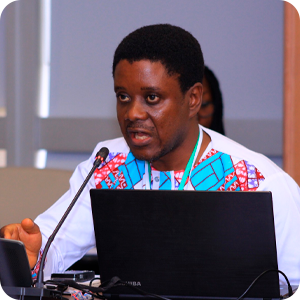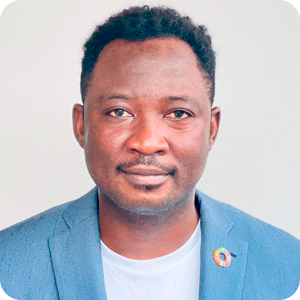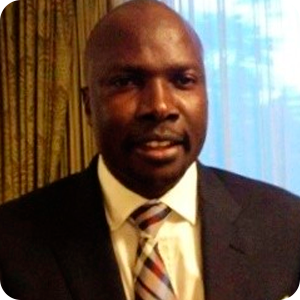As global geopolitical dynamics shift, South-South cooperation is increasingly being seen as key to achieving the 2030 Agenda. In recent years, there has been an increase in trade, technology, investments, infrastructure, and policy collaboration in the Global South. These trends could significantly impact the international order and the relationship between the Northern and Southern hemispheres. While the North-South collaboration focuses on the transfer of resources and expertise from developed to developing countries, with donors controlling the direction of aid, South-South collaboration promotes more equal partnerships between developing countries that can share solutions that are tailored to common challenges and based on solidarity and similar experiences. Could the rise of South-South collaboration open the door to new opportunities? Or will it trigger a series of challenges for the international development community? Let’s learn some expert opinions below.
Key Takeaways:
- As opposed to North-South models that are one-sided and often transactional, South-South cooperation is more of an equitable partnership where partners share contributions towards common development goals.
- By pooling resources, exchanging innovations, and leveraging regional experience, countries in the Global South can implement tailored solutions that promote sustainable development and align with their economic structure.
- International organizations have a vital role in supporting South-South partnerships by engaging with them as equal partners and enabling Southern partners to value their capacities and push for jurisdictional sovereignty over their resources.
DevelopmentAid: What factors are driving South-South cooperation, and how do these partnerships differ from the North-South models?

“I think the concept of South-South cooperation, while currently garnering greater global attention, is by no means a novel phenomenon in view of early initiatives and establishments such as the Group of 77 (G77) in 1964, which advocated for collective economic and political interests within the United Nations framework. These earlier efforts laid the groundwork for what we now observe as a more structured and impactful form of collaboration among countries of the Global South. In recent decades, this cooperation has evolved from rhetorical solidarity to tangible action, driven by a mix of economic, political, and socio-cultural factors, alongside a growing capacity among emerging economies to take the lead in addressing global challenges. Countries like China, India, and Brazil have emerged as pivotal actors, bringing not only financial resources but also technology and trade networks to the table. This shift has redefined the structure and narrative around global development, positioning these nations as co-investors rather than aid recipients. The focus is on equitable partnerships that are rooted in shared experiences and mutual benefit, distinguishing South-South cooperation from the traditional North-South paradigm, which has often imposed conditionalities that are tied to governance reforms or neoliberal economic policies, thereby limiting the autonomy of recipient nations.
A few examples of South-South cooperation are worth highlighting. A case in point is China’s recent pledge of raising over 177 billion RMB (RMB – renminbi also known as the Chinese yuan, is the official currency of the People’s Republic of China. 177 billion RMB equals approximately US$24.5 billion) to support developing countries to address climate challenges. This financial commitment maps out China’s leadership in advancing global climate governance. Similarly, at COP29 in Baku, Azerbaijan, China’s Ministry of Ecology and Environment and Nigeria’s Ministry of Environment signed a memorandum of understanding to develop the Lekki Low Carbon Demonstration Zone. Located in Nigeria’s Lekki Free Trade Zone, this initiative aims to integrate low-carbon strategies into critical sectors such as energy and construction, enabling Nigeria to adopt environmentally sustainable development pathways.
Another innovative aspect of South-South cooperation is triangular cooperation, whereby developed nations or multilateral organizations provide supplementary support for South-South initiatives. This model not only reinforces the autonomy of the participating nations but also decentralizes decision-making processes. Such partnerships highlight the emphasis on tailored, localized solutions, moving away from the one-size-fits-all approaches typical of some North-South frameworks. South-South cooperation also goes beyond government-led initiatives to actively engage grassroots actors and civil society. The Africa Climate Summit held in Nairobi Kenya in 2023 solidified this example where there was a platform for local organizations to contribute to policy discussions, fostering inclusivity in addressing critical issues such as the green economy, regenerative agriculture, and gender in development. This recognition of grassroots participation reflects the underlying principle of empowerment that distinguishes South-South cooperation. Additionally, it is recognizing how shared historical experiences and analogous challenges faced by countries in the Global South are acting as a unifying force. Nations across Africa, Asia, and Latin America often grapple with infrastructure deficits, rapid urbanization, and environmental vulnerabilities. These commonalities are the foundation of partnerships such as what we have seen with the ProSavana project involving Brazil, Mozambique, and Japan. Through this initiative, Brazil is sharing its expertise in tropical agriculture to address food security challenges in Mozambique, displaying how South-South cooperation can translate shared struggles into shared solutions.”

“Despite the contextual differences in Global South countries with differing policy gaps that need to be addressed, these countries have come to the realization that more could be achieved through South-South cooperation that blurs these differences. As opposed to North-South models that are one-sided and often transactional, with the Southern partners at the receiving end, South-South cooperation is more of an equitable partnership where the partners value each other and their contributions towards common development goals.”

“The debate about South-South cooperation has emerged as a crucial component of international development, fueled by the growth of emerging economies, common difficulties, and the necessity for brainstorming about localized solutions. Opposite to North-South models that frequently highlight hierarchical assistance dynamics, South-South partnerships emphasize shared benefits, equity, and flexibility in local circumstances. These collaborations enhance trade, investment, and policy connections among developing countries, establishing alternative growth trajectories that are more inclusive and socio-economically contextually relevant.”

“South-South cooperation is picking up speed as nations in the Global South find common ground in their experiences and aspirations. They’re all facing similar hurdles — like climate change effects, poverty, and inequality — and they’re realizing that solutions created in their contexts often work better than those brought in from the Global North. These collaborations focus more on working together than on charity. In contrast to the traditional North-South approach, which can sometimes come off as one-sided or transactional, South-South cooperation thrives on mutual respect and shared objectives. It’s more of a dialogue than a lecture, and that makes a significant difference.”
DevelopmentAid: How can South-South cooperation address global challenges such as climate change and poverty?

“Being rooted in shared experiences and solidarity, South-South cooperation offers a transformative opportunity to tackle systemic issues such as climate change and poverty. Take, for instance, the International Solar Alliance led by India. This initiative has enabled countries in the Global South to adopt solar energy technologies at scale. It not only contributes to global carbon reduction goals but also ensures energy access for underserved populations, a dual outcome that aligns with the overall characteristic of South-South partnerships. Also, climate finance has become a central concern in global forums, with debates intensifying around the New Collective Quantified Goal. At COP29 in Baku, developing nations highlighted the urgent need for financing mechanisms and debt architecture that prioritize grants over loans, preventing debt dependency among nations that are already grappling with economic vulnerabilities. Also, the Southern Climate Partnership Incubator (SCPI) highlights how South-South cooperation accelerates access to green technologies. Since its inception alongside the Paris Agreement, SCPI has facilitated technical assistance and capacity-building in renewable energy adoption. Regarding poverty alleviation, that is happening at a global and regional scale. However, what makes it sustainable in terms of project longevity is localized solutions that are viewed as long-term investment. For example, the IBSA Fund (supported by India, Brazil, and South Africa) has provided safe drinking water to thousands in Cabo Verde and supported health insurance programs in Grenada. These tangible outcomes showcase the impact of pooling resources to meet basic needs in marginalized communities. Additionally, regional trade agreements such as the African Continental Free Trade Area stimulate intra-continental trade, industrialization, and job creation which goes in tandem with SDG 9 (Industry, Innovation, and Infrastructure).”

“Climate change, while coined as a standalone Sustainable Development Goal 13 in the 2030 Agenda, will directly or indirectly influence the achievement of all 17 Goals. It is important to remember that the countries of the Global South are not those that cause climate change. They are at the receiving end of the impacts of climate change including ramping up poverty. At the same time, the Global South resource endowments hold a key to addressing the climate change crisis. For example, there is an urgent push for a global energy transition to meet the global decarbonization agenda. There is a rush to extract minerals from the Global South that are required to produce transition energy technologies. South-South cooperation is crucial for these mineral-rich countries to build safeguards that enable them to benefit from this new momentum and avoid being trapped in the negative externalities that are associated with resource extraction, including exacerbating the impacts of climate change including poverty.”

“This collaboration possesses considerable potential to address global issues such as climate change, environmental sustainability, and the uneven concentration of wealth. By pooling resources, exchanging innovations, and leveraging regional experience, countries in the Global South can implement tailored solutions that promote sustainable development and align with their economic structure.”

“When it comes to addressing major global challenges such as climate change and poverty, South-South cooperation offers something special: a genuine understanding of local situations. Whether this is through sharing cost-effective renewable energy technologies or collaborating on regional food security efforts, these partnerships provide practical, grassroots solutions that fit their specific contexts. They emphasize teamwork and tackling root issues rather than just offering quick fixes. By standing in solidarity, these countries can enhance their impact and demonstrate that collaboration — not competition — is the key to progress.”

“South-to-south cooperation can address the challenges of poverty and climate change by taking their Northern counterparts into account to change the international development architecture that uses the southern countries as sources of cheap raw materials and a dumping ground for their manufactured goods and obsolete technologies. These development paradigms lock Southern countries at the bottom of the industrial and technological value chain. Only after that inequality has been addressed can Southern countries pull themselves out of poverty, and only then can they contribute meaningfully to tackling the climate change challenge.”
DevelopmentAid: What role do international organizations play in supporting South-South partnerships, and how can they be strengthened?

“International organizations act as the facilitators and enablers of South-South cooperation by providing resources, platforms for dialogue, and technical support. However, their role must evolve to align with the unique needs and principles of these partnerships. The United Nations Office for South-South Cooperation, for instance, has been pivotal in promoting this collaboration. However, the financing ecosystem must evolve to meet the growing demands of developing nations. At COP29, a recurring shift of blame was on developed countries largely shifting responsibility for climate financing onto multilateral development banks, DFIs and private sources, perpetuating a reliance on loans. This ends up backfiring because it leaves vulnerable nations in a constant cycle of debt repayment. Prioritizing what development experts have tagged as “blended financing infrastructure” would help to ensure that the receiving nations are not placed with unsustainable debts. Another focal discussion gaining traction is “polycrisis philanthropy”, a systemic lens to understand and tackle the interdependencies among crises. It focuses on addressing climate change in tandem with economic inequality and public health challenges. Finally, decentralized approaches to development financing can empower local communities to take the lead in designing and implementing projects. By shifting power dynamics and fostering collaboration among technology partners and local stakeholders, South-South cooperation can democratize access to resources, ensuring that development is both inclusive and sustainable.”

“International organizations have the vital role of supporting South-South partnerships by engaging with them as equal partners and enabling Southern partners to value their capacities and push for jurisdictional sovereignty over their resources. The international partners need to listen carefully to the Southern partners’ positions regarding their needs and aspirations on the global development agenda, including the transition to alternative forms of energy, resource extraction, and use, etc.”

“In summary, international organizations, such as the International Monetary Fund and the World Bank, can play a key role in facilitating these initiatives by providing technical assistance, financial support, and a collaborative environment. To amplify their impact, these institutions need to align their interventional frameworks with the interests of South-South countries and strengthen procedures that promote enduring collaborations.”

“International organizations play a crucial role, but it is not about taking the lead; it is more about providing support from behind the scenes. They can help by facilitating connections between countries, offering capacity-building tools, and ensuring that voices from the South are represented in global discussions. To improve their efforts, they need to be more flexible, less bogged down by bureaucracy, and more focused on listening. Strengthening these partnerships means allowing countries in the Global South to set their own priorities while offering the necessary support for their success. It is all about collaboration, not control.”

“A seat at the table — in this case, the international table — needs urgent re-examination as we approach the 2030 SDG deadline. International jobs focused on Global South issues still lack representation from Global South-rooted nationals. While some international organizations have autotomized their country offices or hired diverse candidates from the Global North, the lack of inclusivity of Global South rooted nationals limits lived experience and contextualized support for impactful projects. The available roles are concentrated in Southeast Asia, although there are opportunities for regions like sub-Saharan Africa, where most development projects are targeted. Those who want these jobs have to relocate, a lengthy process that creates brain drain. Talent exists: Africa, for instance, is home to a vast, underutilized pipeline of educated yet unemployed talent. These individuals are available for HQ strategic roles, not just country office jobs. International hires would, in turn, create opportunities for other South talent, ensuring that aid funding is optimized within these regions, generating more impact. To solve this, adopt inclusive hiring for global roles, reallocate budgets and leverage cost-effective Employers of Record agencies to navigate the regulatory requirements and provide more preparatory trainee fellowships to prepare a pipeline for international work. By implementing these actions, rooted individuals can align global strategies to local problems. Leaders such as Winnie Byanyima (UNAIDs) and Supachai Panitchpakdi (WTO) exemplify this. Perceptions of unqualified talent and regulatory hurdles can now be left behind.”
The international development sector is in constant change, opening doors to both opportunities and challenges in the job market. To stay up to date with the latest trends, professionals in the sector can read all the relevant news and editorials on the DevelopmentAid platform and draw their own conclusions. In addition, by opting for the Individual Professional Membership, experts can check more than 6,500 openings in the development sector, tenders and grants for individuals, salary trends, webinars and access many other useful tools.

